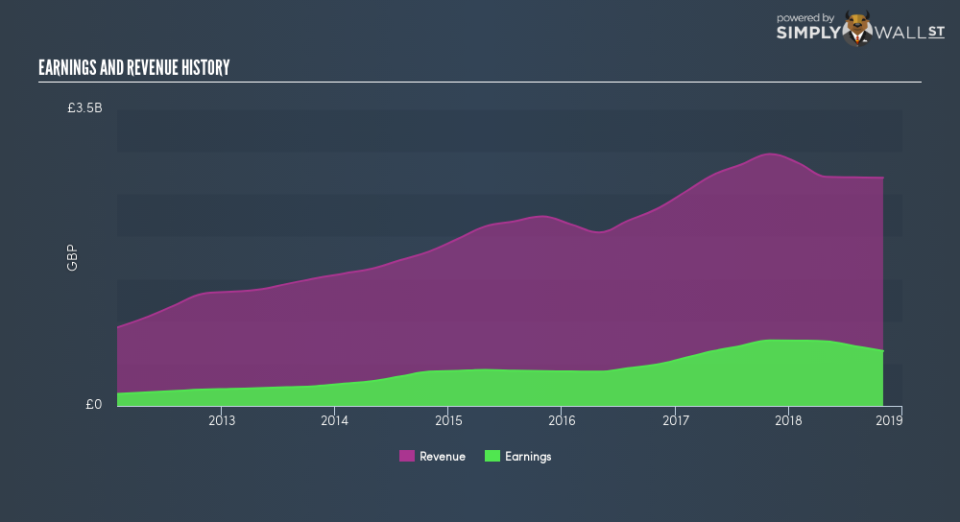With A -16% Earnings Drop, Did The Berkeley Group Holdings plc (LON:BKG) Really Underperform?

Measuring The Berkeley Group Holdings plc’s (LON:BKG) track record of past performance is an insightful exercise for investors. It enables us to reflect on whether the company has met or exceed expectations, which is a powerful signal for future performance. Below, I will assess BKG’s recent performance announced on 31 October 2018 and compare these figures to its historical trend and industry movements.
See our latest analysis for Berkeley Group Holdings
Want to help shape the future of investing tools and platforms? Take the survey and be part of one of the most advanced studies of stock market investors to date.
How Did BKG’s Recent Performance Stack Up Against Its Past?
BKG’s trailing twelve-month earnings (from 31 October 2018) of UK£649m has declined by -16% compared to the previous year.
Furthermore, this one-year growth rate has been lower than its average earnings growth rate over the past 5 years of 21%, indicating the rate at which BKG is growing has slowed down. Why could this be happening? Well, let’s look at what’s going on with margins and if the whole industry is facing the same headwind.
In terms of returns from investment, Berkeley Group Holdings has invested its equity funds well leading to a 24% return on equity (ROE), above the sensible minimum of 20%. Furthermore, its return on assets (ROA) of 14% exceeds the GB Consumer Durables industry of 11%, indicating Berkeley Group Holdings has used its assets more efficiently. However, its return on capital (ROC), which also accounts for Berkeley Group Holdings’s debt level, has declined over the past 3 years from 27% to 22%. This correlates with an increase in debt holding, with debt-to-equity ratio rising from 0.09% to 11% over the past 5 years.
What does this mean?
Berkeley Group Holdings’s track record can be a valuable insight into its earnings performance, but it certainly doesn’t tell the whole story. Companies that are profitable, but have volatile earnings, can have many factors affecting its business. You should continue to research Berkeley Group Holdings to get a better picture of the stock by looking at:
Future Outlook: What are well-informed industry analysts predicting for BKG’s future growth? Take a look at our free research report of analyst consensus for BKG’s outlook.
Financial Health: Are BKG’s operations financially sustainable? Balance sheets can be hard to analyze, which is why we’ve done it for you. Check out our financial health checks here.
Other High-Performing Stocks: Are there other stocks that provide better prospects with proven track records? Explore our free list of these great stocks here.
NB: Figures in this article are calculated using data from the trailing twelve months from 31 October 2018. This may not be consistent with full year annual report figures.
To help readers see past the short term volatility of the financial market, we aim to bring you a long-term focused research analysis purely driven by fundamental data. Note that our analysis does not factor in the latest price-sensitive company announcements.
The author is an independent contributor and at the time of publication had no position in the stocks mentioned. For errors that warrant correction please contact the editor at editorial-team@simplywallst.com.

